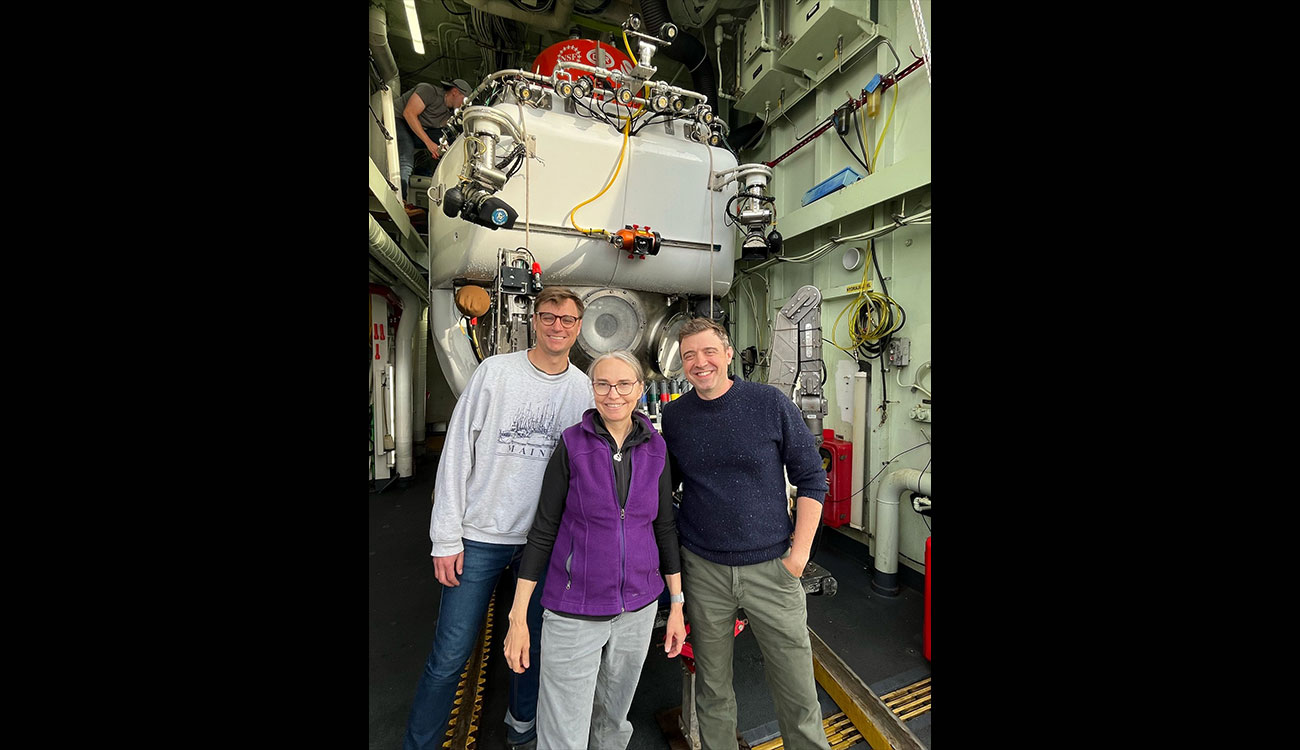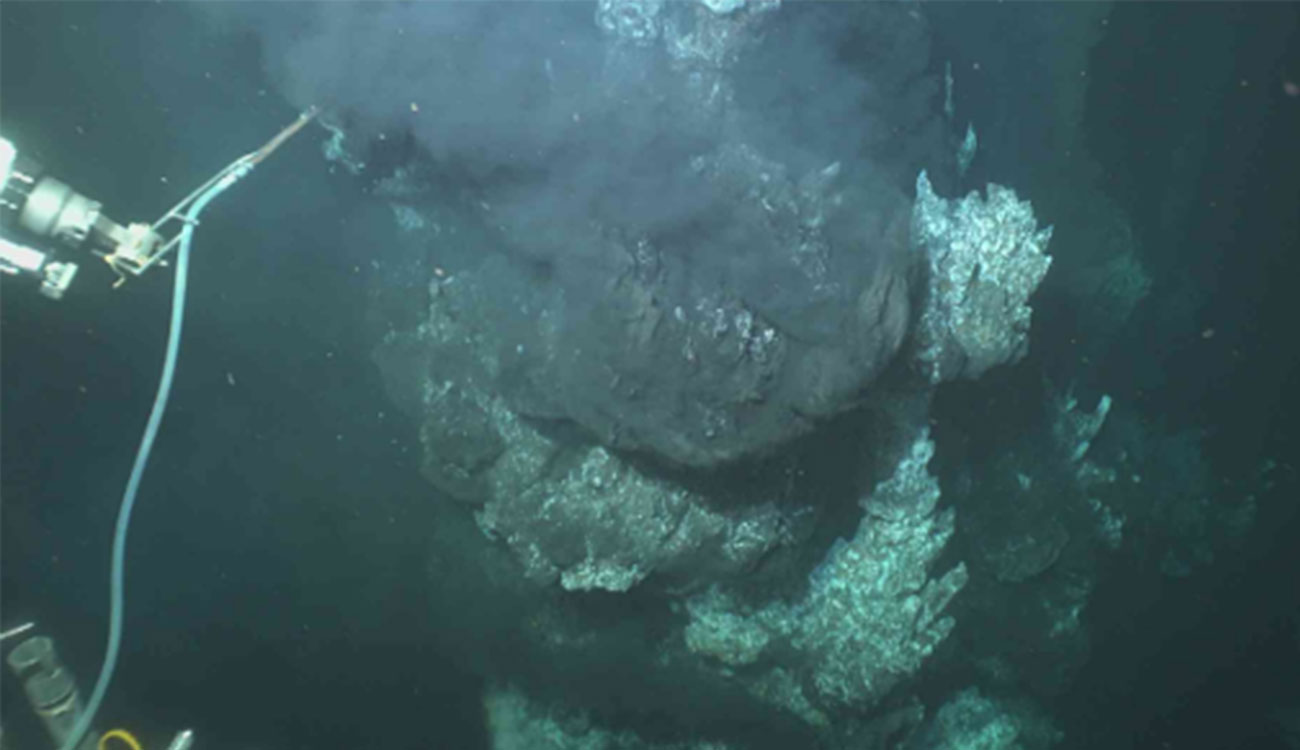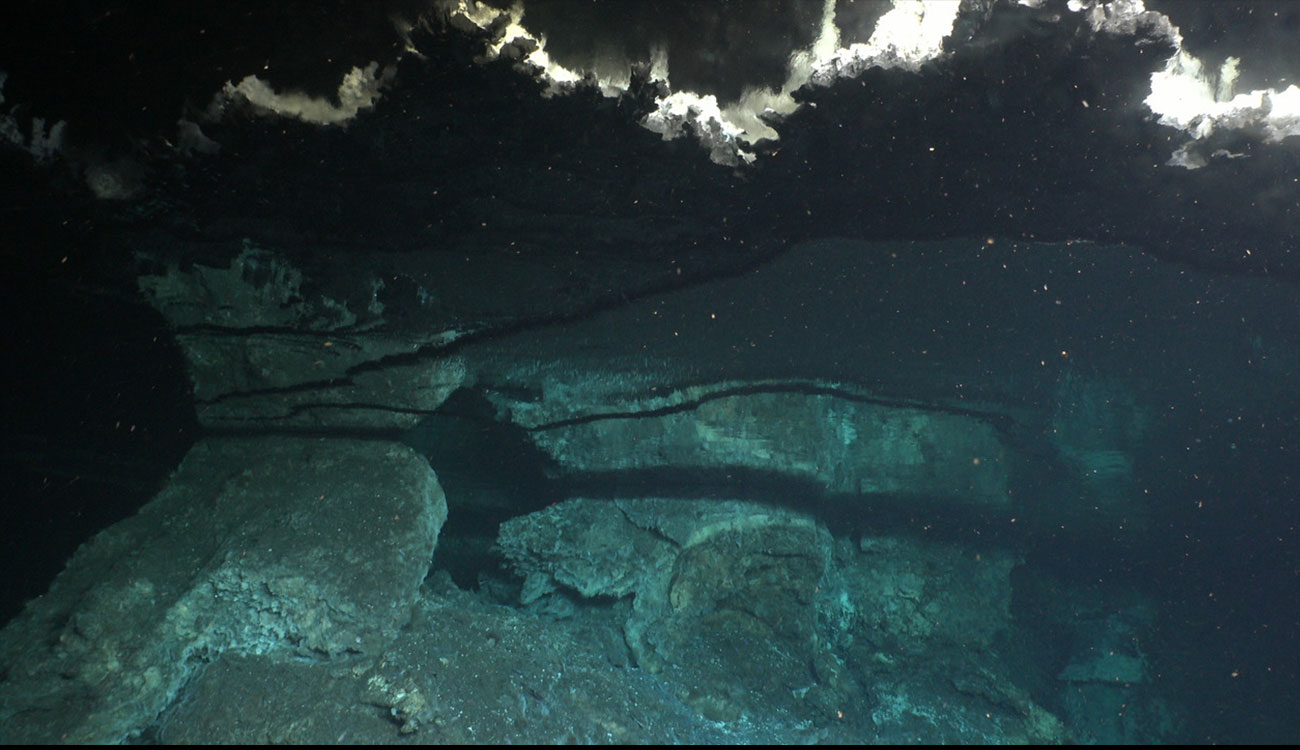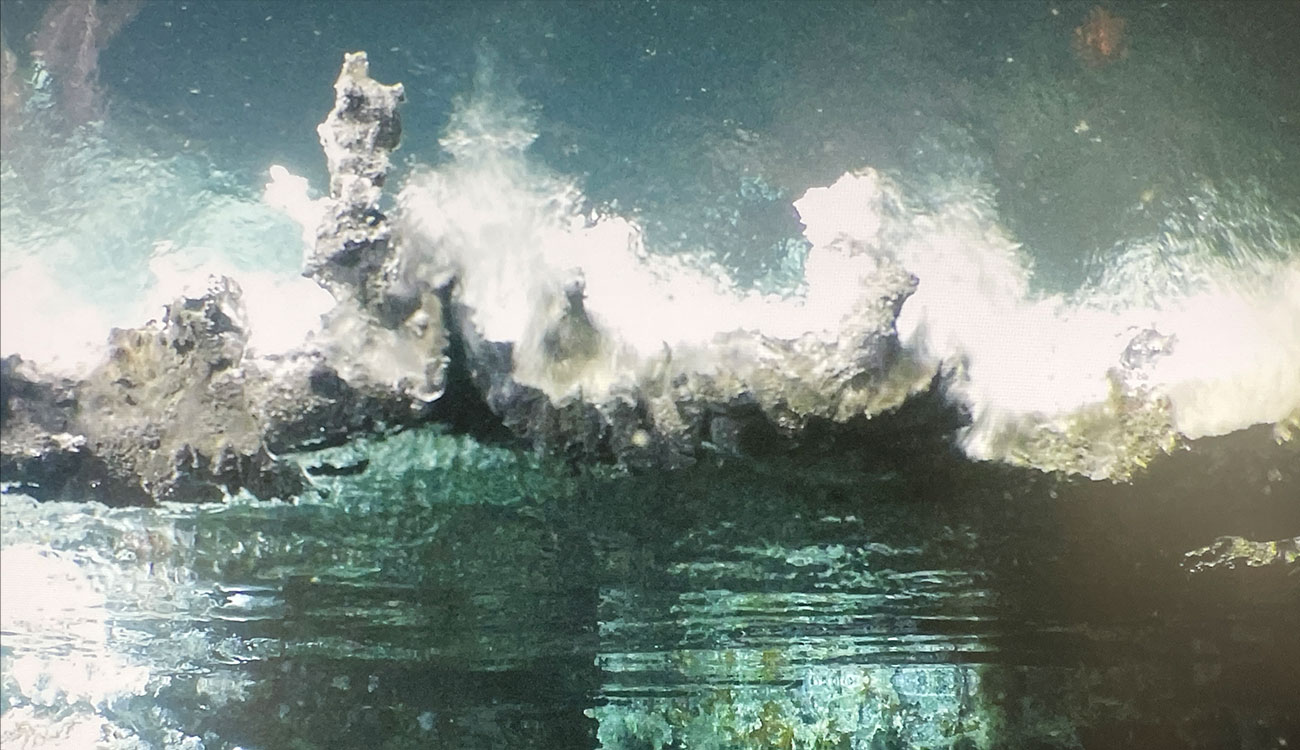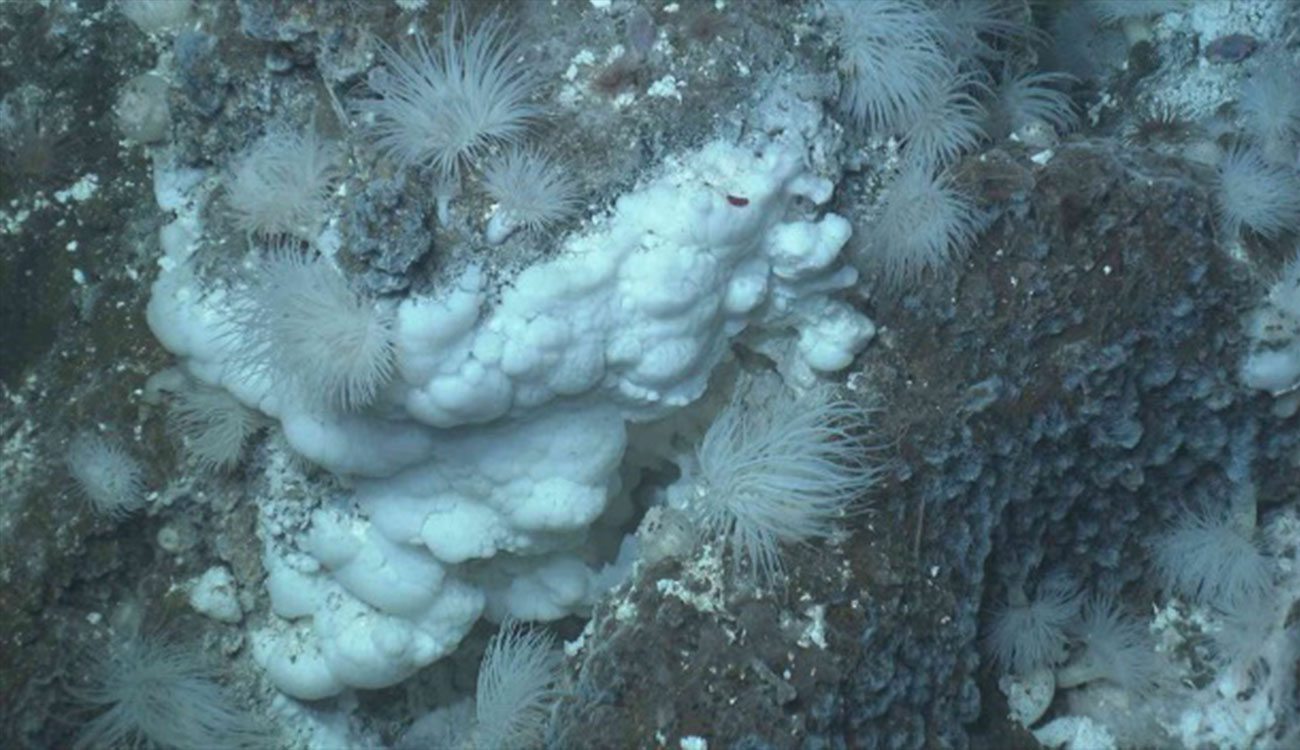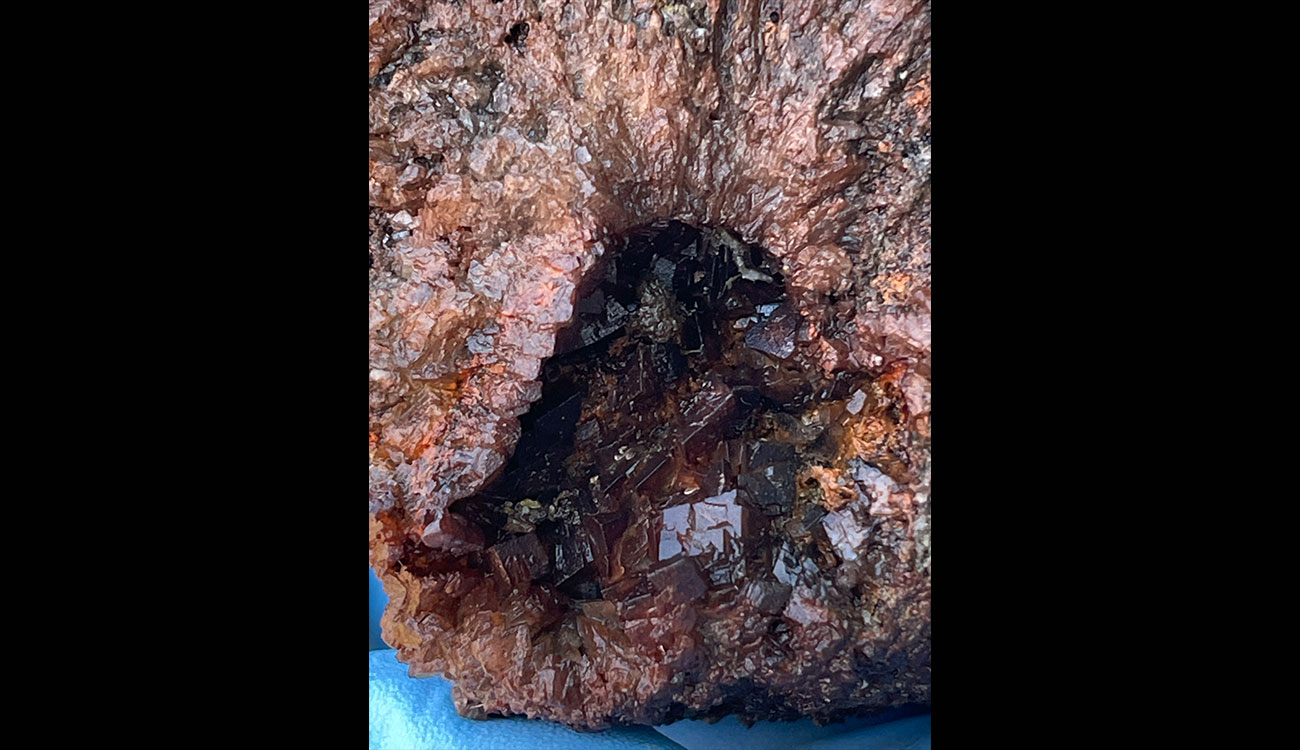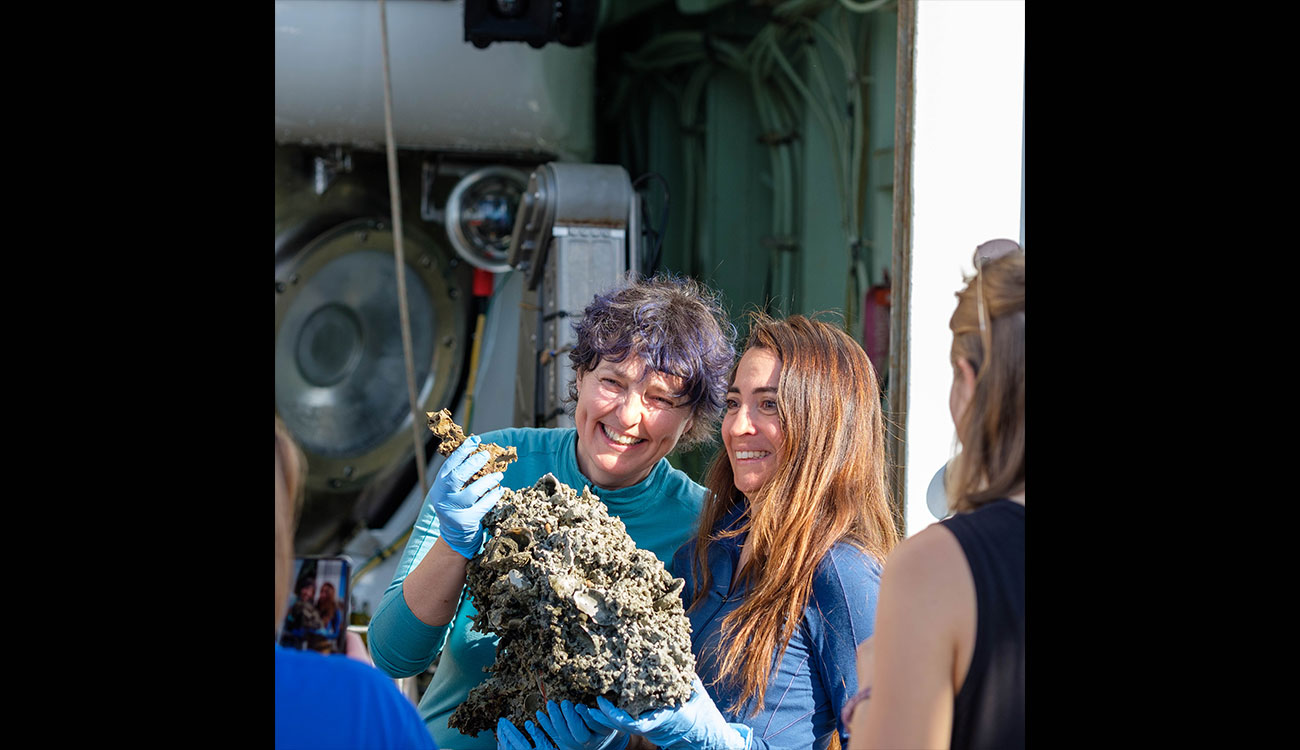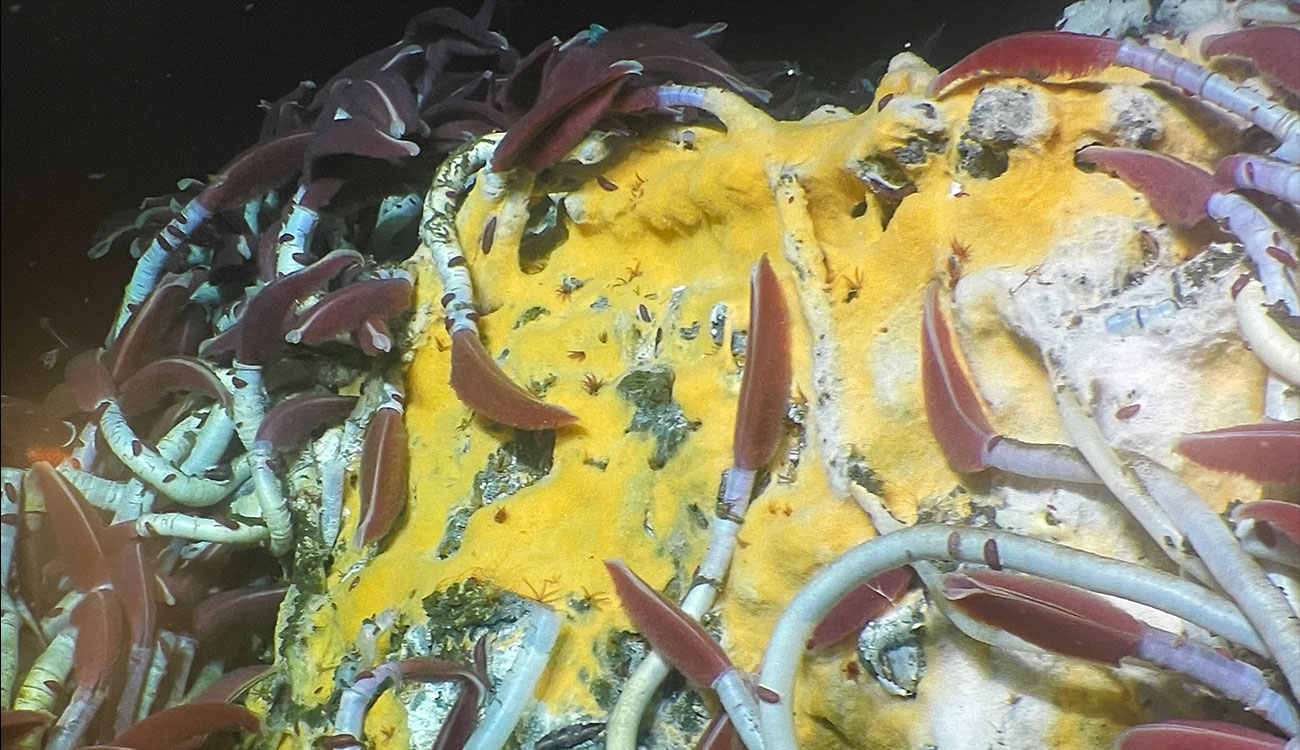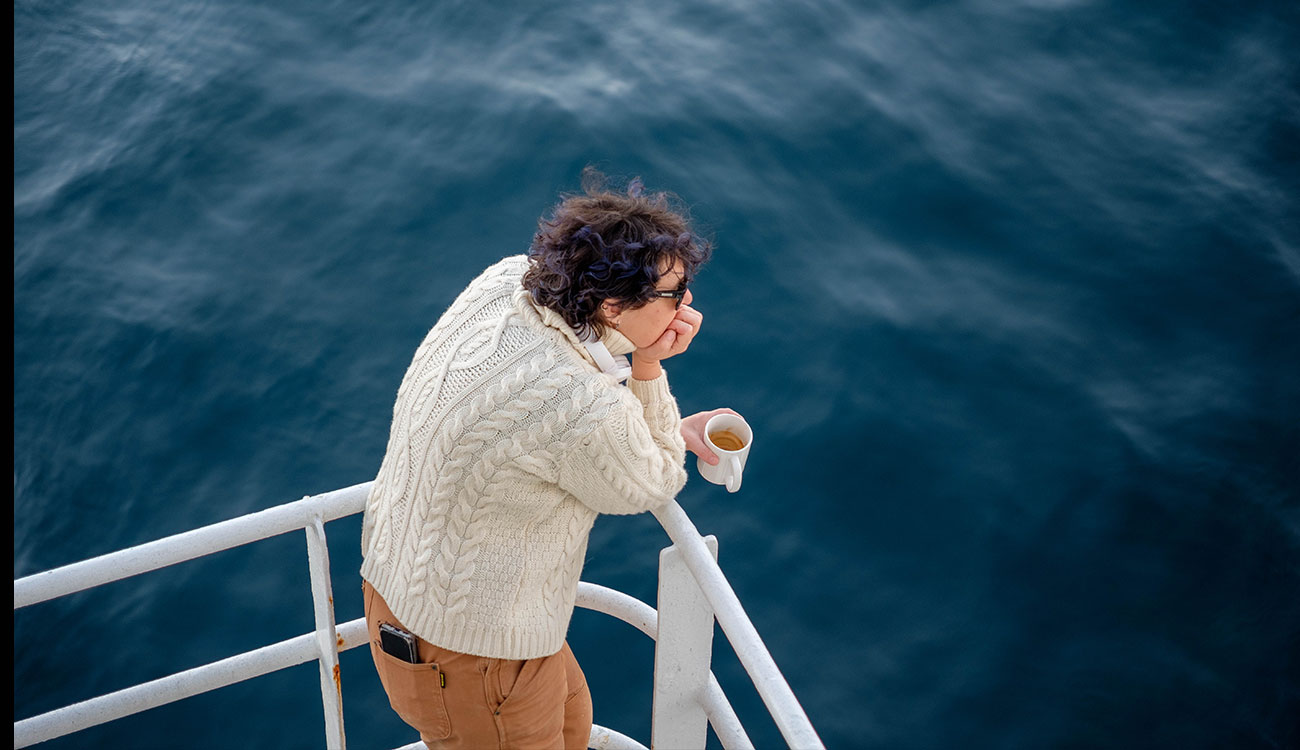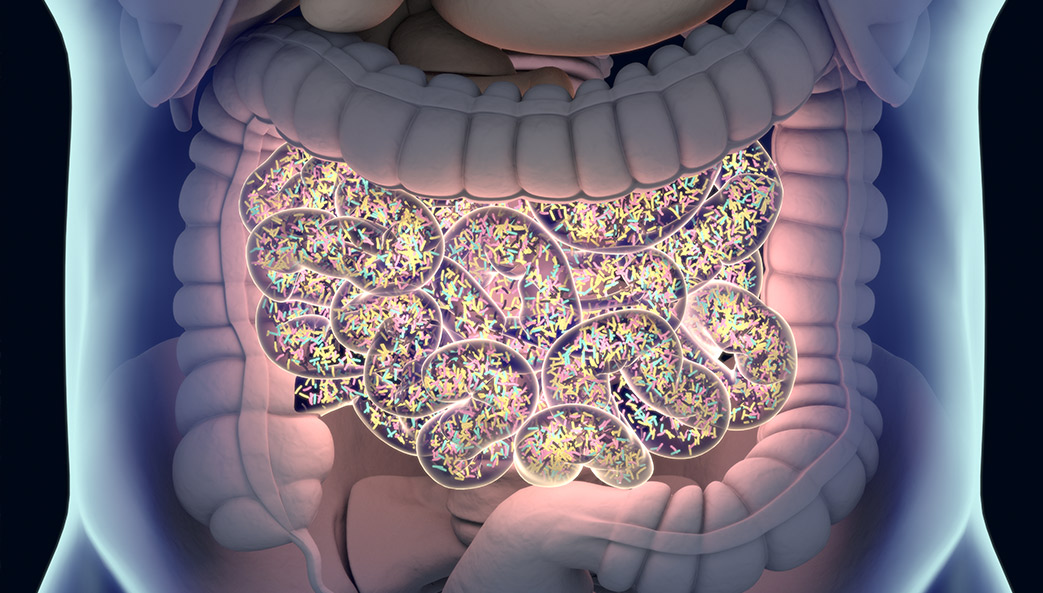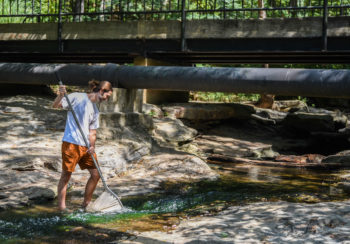When Samantha Joye and her fellow researchers once again set sail into the Gulf of California, they weren’t sure what to expect.
Joye had been studying hydrothermal vents in the area for over 15 years—her first expedition taking place in 2009—but hadn’t returned since 2019 due to the COVID-19 pandemic.
With help from a National Science Foundation grant, Joye led an interdisciplinary team in Spring 2024—composed of researchers from Montana State University, University of Texas at Austin, and University of Wisconsin—to the gulf aboard the research vessel Atlantis, a U.S. Navy ship operated by Woods Hole Oceanographic Institution.
“When you’re on a ship, operations occur around the clock. When you’re the chief scientist, there is not much rest,” said Joye, Regents’ Professor and UGA Athletics Association Professor in the Franklin College of Arts & Sciences Department of Marine Sciences. “I would get about four hours of sleep each night, then I was back in the lab or preparing for a dive.”
Upon finally reaching the study area, they discovered drastic changes due to many earthquakes occurring over the past five years, as well as the recent El Niño climate pattern.
“We had to start from scratch. The area had changed so much, we didn’t even recognize it,” Joye said.
The team spent three weeks at sea, investigating how recent events had affected hydrothermal systems located along the gulf’s sea floor. The hydrothermal vents release high-temperature water that creates a black “smoke” when mixed with the cold seawater.
Many of these vents discharge methane gas, a highly potent greenhouse gas. Joye noted that understanding the geological and biological sources of methane in the ocean helps scientists better understand the role of the ocean in the global methane cycle and the flux of methane into the atmosphere.
The team’s discoveries were featured in the Explorers Club’s Oceans Week conference in June, and Joye is providing footage of hydrothermal vents to the upcoming “Blue Planet III” documentary, produced by the BBC.




